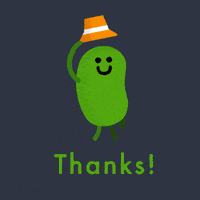𝐌𝐚𝐜𝐡'𝐬 𝐠𝐮𝐭, 𝐈𝐍𝐆. 𝐌𝐞𝐢𝐧𝐞 𝐞𝐫𝐬𝐭𝐞 𝐀𝐤𝐭𝐢𝐞 𝐢𝐬𝐭 𝐡𝐞𝐮𝐭𝐞 𝐚𝐮𝐬 𝐦𝐞𝐢𝐧𝐞𝐦 𝐃𝐞𝐩𝐨𝐭 𝐠𝐞𝐟𝐥𝐨𝐠𝐞𝐧.
Today the limit sell order was executed for the entire stock of the 1st stock I ever bought: $INGA (-0.89%) . I added this stock to my portfolio about 3 years ago. Before that I was only invested in various actively managed funds, ETF, gold and crypto. I went through many ups and downs with this stock. Bought for 10.45 euros a piece. In addition, due to the 10 euro DKB fee, in larger quantities than I now do with Scalable.
First I could observe a sideways trend and be happy about my first dividend. Then came March 2020, Corona and the share collapsed at times by up to 60%. A strange feeling, even though I was quite familiar with the condition from my crypto investments. However, my investment in ING was significantly higher than in crypto a few years ago. Still, I stuck with it because I believed in the company. I even recommended the stock to a friend who caught a very good entry point. Even though ING recovered a bit slower than the rest of the market, I could at least enjoy dividends and a price of 13.50 euros per share in February 2022. However, the second crash came a short time later with the Ukraine war. This was also the time when I first asked myself whether I still believed in the company ...
But why did I choose ING at that time in the first place? No, no metrics, no trust in the CEO, no technical analysis, ... the reason was nerdy: I was setting the organizational course for the company I was working for at the time to enable "DevOps" in our IT. Simply put, a collaborative way of working across all divisions, breaking down silos, automating and reducing bureaucracy. For me, this is an important prerequisite for being able to survive as a company in the future. So I was all the more surprised when I learned that ING, a company from the dusty banking industry where it feels like there are still a bunch of COBOL programmers in every basement, had already been able to establish a DevOps culture. What's more, ING had set itself the goal of organizing itself in the broadest sense according to the Spotify model. In other words, a structure and process organization from a tech startup. I was thrilled. I simply had to invest in a modern company from a dusty sector. The share price was also favorable, so I bought it.
At that time, I was still miles away from strategic asset accumulation, and the same applied to sensible stock selection criteria. In the meantime, however, I have - also thanks to the GetQuin community - a plan that I follow (no, not quite the one from January 😅), and accordingly I will gradually rebuild my portfolio. I cover the core of my portfolio with ETFs. With the individual stocks I want to gamble a bit and speculate on yield boosters (works so far also excellent 📉). And ING just doesn't fit in there. I can't see myself beating the market with ING. Besides, my selection criteria at the time were ... well ... let's call it "questionable." So away with it!
Overall, ING stock has given me (after taxes and fees) a scant 4% return per year. Actually a good value considering I bought less than a year before the Corona crisis and sold in the middle of the Ukraine crisis. With this in mind, dear ING, I wish you all the best for your further professional and private career and hope that my shares make their new owner happy.
To the GetQuin community a big thank you goes out, without you I would probably still be just investing somehow without any sense. Ask yourself what you want to achieve with your investments, how you can achieve it, work out a plan / strategy and stick to it.








